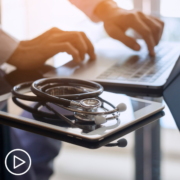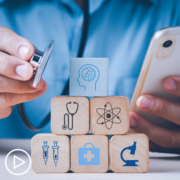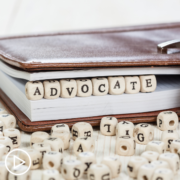As soon as the first golden leaves of autumn appear on the trees a feeling of sadness starts to descend over me. I’m catapulted back over the years to a late September day. A day that’s etched forever on my mind. The day I was diagnosed with breast cancer.
In the weeks that followed my diagnosis, I became enveloped in a sea of pink as Breast Cancer Awareness Month took place. But when October came to an end and the pink ribbon wearers disappeared, I was left wearing the everyday reality of the disease. Over a decade has passed since then and yet I still feel a sense of sadness when I think of that time and all I had yet to learn and go through. I can’t help wondering how much my experience might have been different if I had known then what I know now.
One thing I now know is that we owe it to those who come after us to share our hard-earned wisdom. So in that spirit, here are ten things I wish I had known back when I was a newly diagnosed patient. I hope sharing these lessons may make the path towards recovery that little bit smoother for others who are new to this journey.
1. Everything in your life is about to change
Once you’ve been baptized in the fire of cancer your life as you knew it will be irrevocably changed. The apparent randomness of a cancer diagnosis can shake your sense of identity to its very core and afterwards nothing will ever feel certain again. Cancer invades not only your body but every other area of your life, including your relationships, family life, friendships, finances, career, and even your sense of self. You may be surprised to find the people you thought you could count on disappear from your life. At the same time, you will be surprised to find support can also come from unexpected sources.
2. Online support is real
Among those unexpected sources will be the people you meet online. Online communities may be virtual but they are no less real in terms of support and advice. On Facebook and Twitter you can find patient communities which will be an invaluable source of information and support to you. Check out the #BCSM Twitter chat – a weekly chat for breast cancer patients and their caregivers.
3. You will feel fearful and anxious
One of the most common emotional and psychological responses to the experience of cancer is anxiety. Cancer is a stressful experience and normal anxiety reactions present at different points along the cancer pathway. Anxiety is a natural human response that serves a biological purpose. It’s the body’s physical “fight or flight” (also known as the stress response) reaction to a perceived threat. You may experience a racing or pounding heart, tightness in the chest, shortness of breath, dizziness, headaches, upset tummy, sweating or tense muscles. All of these signs indicate that sympathetic arousal of your nervous system has been activated, preparing you to stand your ground and fight or take flight and run away from danger.
Try this coping tip. When we are fearful and anxious we tend to breathe more shallowly. Shallow breathing, which doesn’t allow enough oxygen to enter our bodies, can make us even more anxious. Practice taking some slow deep abdominal breaths. Deep abdominal breathing slows the heart down and lowers blood pressure. The advantage of focussing on the breath is that it is always there with us. We can turn to it anytime we are feeling anxious.
4. You are your own best health advocate
Although you may be reeling from the news of a cancer diagnosis, it’s important that you learn as much as you can about your diagnosis and what treatment options are available. In this article, you will learn which questions you should ask your healthcare team and where to find reliable and trustworthy information to become better informed about your health condition.
5. Your will experience brain fog
Cognitive impairment, to a lesser or greater degree, can affect you both during and after your treatment. You may have the feeling that your cognitive abilities are slower and less acute than before – almost as if your brain is shrouded in a fog. We call this the “chemobrain” effect and the effect may persist for months or even years after treatment ends. A more formal term – post-cancer cognitive impairment (PCCI) – is used by researchers to describe a group of symptoms, which include slow mental processing, difficulty concentrating, organizing, and multitasking.
PCCI symptoms can also include:
- memory loss – forgetting things that you normally remember
- struggling to think of the right word for a familiar object
- difficulty following the flow of a conversation
- confusing dates and appointments
- misplacing everyday objects like keys and glasses
It’s still not clear how many people with cancer get chemobrain or which drugs cause it. However, there are several things that you can do to help you cope with its symptoms. Read this article for more information.
6. You will experience bone-crushing tiredness
We all know what it’s like to feel tired – physically, mentally, and emotionally, but usually after some relaxation and a good night’s sleep, we are ready to take on the world again. When you have cancer, though, rest often isn’t enough. You experience a persistent, whole-body exhaustion. Even after adequate sleep or rest, you will still feel tired and unable to do the normal, everyday activities you did before with ease.
A lot of cancer patients don’t report fatigue to their doctors because they think that nothing can be done for it. In fact, there are things that can be done to alleviate the debilitating effects of cancer-related fatigue. If left untreated, fatigue may lead to depression and profoundly diminish your quality of life, so it’s important that you speak to your doctor if fatigue is an issue for you. Read How To Cope With Cancer-Related Fatigue for more tips and information.
7. You may be surprised by feelings of guilt
Cancer-related guilt is a complex emotion. You may feel guilty and worry that your lifestyle choices somehow contributed to a cancer diagnosis. If you learn that you carry the BRCA1/2 gene, you may feel guilty that you could pass this gene mutation on to your children. Or you may feel guilty that your cancer was diagnosed at an earlier stage than a friend or family member who has a worse prognosis. These feelings of guilt may surprise you, but it’s a perfectly normal reaction to a traumatic life event like cancer. Read How Do You Deal With Cancer Guilt to learn more about this topic.
8. You will feel pressured to stay in a positive frame of mind
I admit I caved in at the beginning to pressure to stay strong and positive when I was first diagnosed with breast cancer. I did it because it reassured the people around me. While I accept that for some people maintaining a positive attitude is a valid coping mechanism, for myself and many others, the pressure to always show our sunny side is a denial of our pain, anger, grief, and suffering. I now believe by promoting this attitude in the face of cancer, we create unfair expectations and deprive patients of an outlet for their darker fears. This is my personal viewpoint, and it’s one that I don’t expect everyone to share. However, I mention it here so that those who are newly diagnosed don’t feel they have to always present a smiling face to the world. It really is ok to express your fears, your sadness, your anger, and your grief too.
9. You will need time to grieve
While many people think of grief only as a reaction to bereavement, we can feel grief after any kind of loss. When we step back and look at the cancer experience we see that grief and loss are a fundamental part of the experience. Some of our losses are tangible, for example losing our hair, and some are more intangible, such as the loss of trust in our bodies.
Coping with the losses associated with cancer is challenging. Grief brings many emotions with it. Patients, as well as caregivers and family members, may go through emotions of anger, denial, and sadness. While there is no right or wrong way to grieve, there are healthy ways to cope with the pain and sadness that, in time, can help you come to terms with your loss, find new meaning, and move on with your life.
10. Cancer doesn’t end when treatment does
I wish I had been better prepared for how I would feel when cancer treatment ended. I just assumed I would pick up where I had left off and get on with my life as if cancer was no more than a blip. I wish someone had told me that cancer doesn’t end when treatment does. Sometimes, there can be a code of silence surrounding the aftermath of cancer treatment. There is an expectation that when you walk out of hospital on that last day of treatment, your cancer story has ended. But in many ways it’s only just beginning.
I now know that cancer is more complicated than simply being disease free and that a physical cure doesn’t mark the end of the healing process. Adapting to changes in energy and activity levels, adjusting to altered relationships at work and in your personal relationships, coming to terms with a changed body image, and managing pain and treatment side effects are some of the things you will face in the post-treatment phase of recovery. Be compassionate and gentle with yourself as you move through this stage of your cancer journey. Don’t judge yourself or feel pressured by others to try to hurry this stage along.
Wrapping Up
Being diagnosed with cancer is a life-changing event. You will go through many emotions and experiences throughout the roller-coaster ride of diagnosis, treatment, and beyond. Each person will experience it in their own way. While there’s no right or wrong way to go through the experience, it’s important that you don’t ever feel as if you have to go through it alone. Reach out at each step of the way and find someone who understands what you are going through and can offer you the support you need.
A Stanford Medicine X e-Patient scholar, Marie Ennis O’Connor is an internationally recognized keynote speaker, writer, and consultant on global trends in patient engagement, digital health and participatory medicine. Marie’s work is informed by her passion for embedding the patient voice at the heart of healthcare values. She writes about the experience of transitioning from breast cancer patient to advocate on her award-winning blog Journeying Beyond Breast Cancer.










